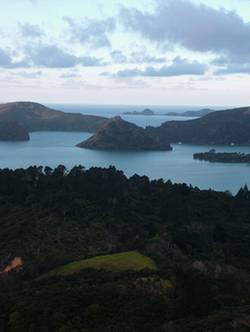Introduction
Coastal water quality is a valuable resource, which is important to Northland's inhabitants and the many diverse forms of marine life that inhabit our coastline. Coastal water quality is influenced by inputs from rivers and streams, urban and rural run off and direct discharges into the coast.
As human land use and urban development intensifies, marine water quality will come under increasing pressure. The threat to coastal water quality is likely to be worse in semi-enclosed coastal water bodies, such as estuaries and harbours, where there is less exchange of water with the open coast.
Northland's coastline includes 14 major harbours, many smaller estuaries and extensive stretches of rocky and sandy open coast. The Northland Regional Council carries out monitoring of the region's coastal environment to record the state of this resource, the effects of human activity, increase awareness of water quality issues, inform decision making and detect changes over time.
Maintaining and protecting coastal water quality is important for:
· Healthy coastal and marine ecosystems;
· Recreational uses such as swimming, sailing, water skiing and scuba diving;
· Fishing, shellfish gathering and aquaculture; and
· Tourism.

Photo: Whangaroa Harbour
